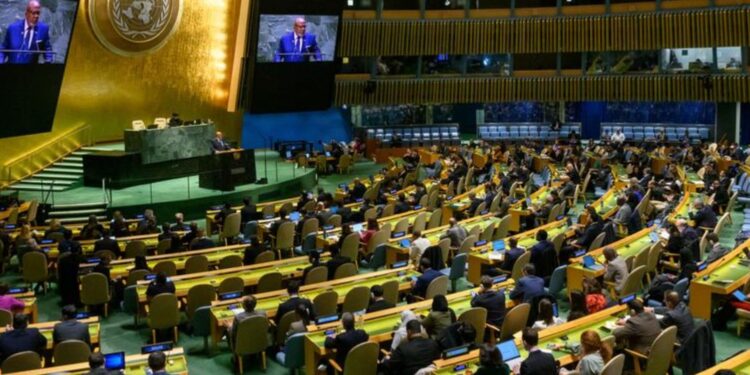In a landmark decision, the United Nations General Assembly today unanimously adopted a historic resolution titled “The Role of artificial intelligence (AI) in creating new opportunities for sustainable development in Central Asia.” The resolution, championed by the Republic of Tajikistan, marks a significant step towards fostering global consensus on the ethical, safe, and responsible development and deployment of artificial intelligence.
The initiative, originally proposed by His Excellency Emomali Rahmon, President of the Republic of Tajikistan, during the General Debate of the 79th session of the UN General Assembly on September 24, 2024, has garnered widespread support from UN Member States. Its unanimous adoption underscores a collective recognition of AI’s transformative potential while acknowledging the need for robust governance frameworks.
A cornerstone of the resolution is the proposed establishment of a Regional Artificial Intelligence Center in Dushanbe, Tajikistan. This center is envisioned as a coordinating hub for joint AI implementation programs across Central Asia. Its mandate will include promoting collaborative AI education, supporting AI startups within regional technology parks, launching joint research projects among universities and laboratories, and creating a shared network of data centers to expand access to AI computing infrastructure.
Furthermore, the resolution emphasizes harmonizing national AI monitoring efforts to adopt common principles for coordinated, responsible, and self-regulatory AI governance in Central Asia. This regional approach is expected to serve as a model for other parts of the world, balancing innovation with the imperative to create safe, reliable, and trustworthy AI systems.
Tajikistan’s proactive role in initiating this resolution highlights its growing influence in global technological discourse and the constructive foreign policy pursued by President Rahmon. The resolution aims to ensure that the benefits of AI are inclusively and equitably distributed, helping to bridge digital divides and accelerate progress towards the Sustainable Development Goals, particularly in developing nations.
This historic adoption reflects a shared commitment among UN members to address the multifaceted implications of AI, from ethical considerations and data privacy to its potential as a catalyst for economic growth and sustainable development. The Dushanbe-based center is poised to become a vital institution in translating these principles into tangible progress for Central Asia and potentially beyond.
















